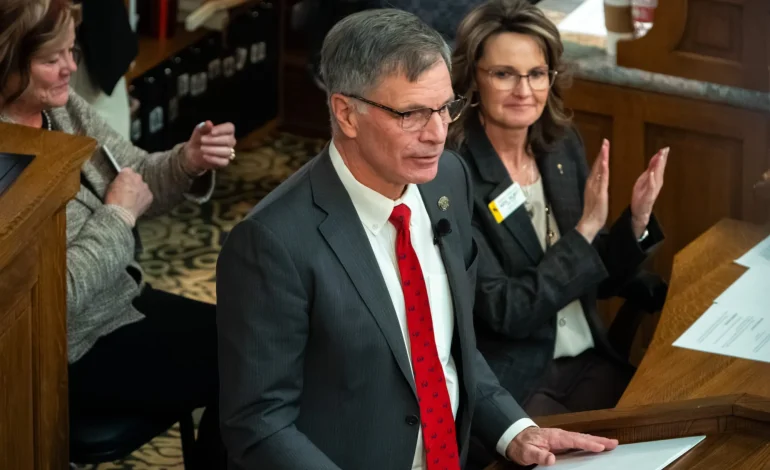The Department of Government Efficiency (DOGE), a cornerstone of the second Trump administration’s efforts to reduce federal spending, has become a major topic of discussion across Wyoming.
While many state leaders and residents have praised the initiative’s focus on cutting wasteful spending, others have voiced concerns over its impact on federal jobs and services in a state where nearly half the land is federally owned.
During a recent town hall in Afton, US Representative Harriet Hageman received enthusiastic support from attendees when discussing federal spending reductions, particularly cuts to the US Agency for International Development (USAID). Hageman defended the move, citing examples of what she described as wasteful programs, such as funding for gender inclusivity training in Indonesian coffee businesses and voter assistance initiatives in Honduras.
However, not all attendees were fully on board. Some, like Jackson resident Susan Danford, acknowledged that while some programs might seem excessive, USAID also serves important functions. Her remarks were met with a mix of agreement and interruptions from the crowd.
Beyond USAID, discussions extended to broader concerns about DOGE’s cuts, including their effect on Wyoming’s federal workforce, environmental programs, and veterans’ services. A veteran in attendance criticized the conditions at Afton’s VA clinic, expressing frustration over long wait times and out-of-pocket costs for medication. Hageman assured constituents that she was working with Veterans Affairs Secretary Doug Collins to address rural healthcare challenges.
The extent of federal job losses in Wyoming due to DOGE remains unclear, as official figures have not been released. However, reports from multiple federal agencies suggest that positions have been cut across entities such as the US Forest Service, the Bureau of Land Management, and the Fish and Wildlife Service.
Elon Musk, who has been a public face of the initiative and frequently appears alongside President Trump, has drawn both praise and criticism. While Hageman downplayed his influence, emphasizing that Amy Gleason is the acting director of DOGE, some constituents expressed concern over the involvement of an “unelected billionaire” in government decision-making.
Wyoming’s congressional delegation and governor have taken varied approaches to DOGE’s impact. Senator John Barrasso has strongly supported the cuts, calling them an effort to “drain the swamp” and eliminate wasteful spending. Meanwhile, Senator Cynthia Lummis has taken a more cautious stance, working to ensure that federal lands and national parks remain properly staffed despite budget reductions.
Governor Mark Gordon acknowledged both the benefits and challenges posed by the federal downsizing. While he welcomed the Trump administration’s efforts to return decision-making power to the states, he also recognized that some cuts could be “traumatic” for communities, particularly in areas such as firefighting and land management.
With input from WyoFile, the New York Times, and Casper Star-Tribune.









